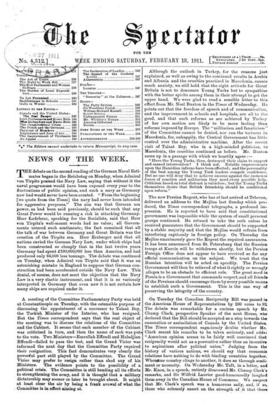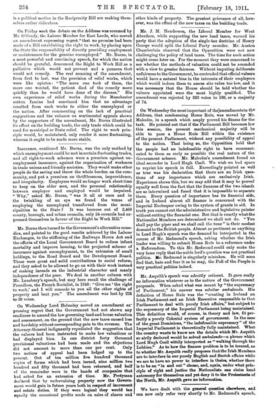On Tuesday the Canadian Reciprocity Bill was passed in the
American House of Representatives by 200 votes to 92. The debate was remarkable for a carious speech by Mr, Champ Clark, prospective Speaker of the next House, who declared that the Bill should be accepted as a step towards the annexation or assimilation of Canada by the United States. The Times correspondent sagaciously doubts whether Mr. Clark meant his remarks to be taken seriously, and adds, "American opinion seems to be fairly well convinced that reciprocity would act as a preventive rather than an incentivs to aspirations after political union." Judging from the history of various nations, we should say that-, economic relations have nothing to do with binding countries together. Whertibne country clings to another, it does so through senti- ment or necessity. On Wednesday Mr. Taft, in a letter, and Mr. Knox, in a speech, entirely disavowed Mr. Champ Clark's remarks, and Sir. Wilfrid, Laurier good-humouredly laughed them away in the Canadian House of Commons. We suspect that Mr. Clark's speech was a humorous sally, and, if so, those who solemnly assert on the strength of it that there
is a political motive in the Reciprocity Bill are making them- selves rather ridiculous.







































 Previous page
Previous page